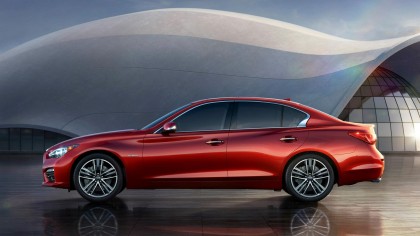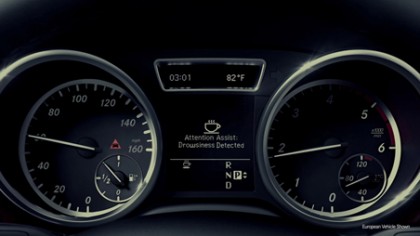How the car of the future will keep you healthy
Hada says a truck company in Japan experimented with a system that wakes up a driver by emitting an aroma in the cab after detecting the driver is drowsy. Another possible enhancement is that instead of playing a loud warning to startle a driver, which itself could cause a crash, Hada says one option could be to play a softer message, such as your own child's voice.

Koslowski says there is a distinct possibility that the car will become much more aware of how you are driving. If you are drowsy, the radio might flip to an ambient rock station.
During a stretch of road that is more prone to collisions between cars, the vehicle might automatically dim the lights and enable a road tracking system that looks closely for dangers. More importantly, the car will know if you are suddenly ill and a danger to yourself - and other drivers.
"The car won't be able to do an X-ray anytime soon, but it will detect if health-related aspects are preventing you from driving the way you should," Koslowski says.
Challenges ahead
In 2011, Nissan presented a concept car that could tell if you were driving drunk. A sensor in the gear stick monitored for a high alcohol level. If the car determined that the driver was over the alcohol limit, you couldn't put it into first gear and a message would appear in the nav system.
As you might expect, some wondered if your car should know if you are about to commit a crime.
Steve Yaeger, a Nissan spokesperson, told TechRadar that the challenge with these systems lies in knowing whether drivers will be comfortable giving up their privacy in this way. For example, he says that there is already the automotive tech available to take the body temperature of a driver, which might be used to determine if he or she is unwell, but drivers don't want that intrusion.
Sign up for breaking news, reviews, opinion, top tech deals, and more.

Then there is the challenge of sharing private information. If the car can read your blood pressure and pulse, it can also share this data (in the upcoming Microsoft Xbox One, the new Kinect 2 sensor can tell if you have elevated pulse just by monitoring your skin colour).
"It would get more problematic if this information is shared with other organisations such as health insurance providers or the police," says Koslowski.
The good news is that drivers will adopt and approve of these measures if they do provide a health benefit. We may be willing to let our car drive us to the hospital if the alternative is that we die on a lonely roadside.
And, we may even approve of a breath analyser to see if we are too intoxicated to drive a loved one home from a party. The technology is waiting in the wings; now we just need society to catch up to it.

John Brandon has covered gadgets and cars for the past 12 years having published over 12,000 articles and tested nearly 8,000 products. He's nothing if not prolific. Before starting his writing career, he led an Information Design practice at a large consumer electronics retailer in the US. His hobbies include deep sea exploration, complaining about the weather, and engineering a vast multiverse conspiracy.